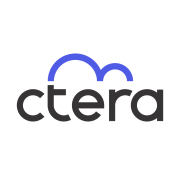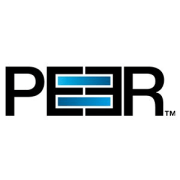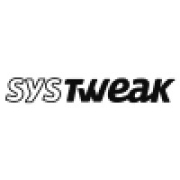File System Software enables efficient management of data by organizing files and directories on storage devices. It is crucial for ensuring data accessibility, storage optimization, and system performance, addressing the complex needs of enterprises handling large volumes of data.
This software category is designed to manage file systems on different operating systems, facilitating tasks like file navigation, creation, deletion, reading, and writing operations. Some solutions offer advanced features such as encryption, versioning, and journaling to enhance data security and functionality. Users appreciate the performance improvements and simplified data recovery it offers, which are essential for enterprise environments. The adaptability and scalability of these solutions cater to varying business sizes, ensuring seamless integration and operation.
What features should be noted?File System Software is implemented across industries such as finance, healthcare, and logistics to manage massive datasets. It supports compliance with industry regulations and provides secure storage for sensitive data, essential for these sectors. In finance, it handles high transaction volumes, while in healthcare, it safeguards patient records.
This category is vital for organizations as it organizes and optimizes data storage, ensuring easy access and management while maintaining security and compliance with industry standards.
| Product | Market Share (%) |
|---|---|
| Nasuni | 20.2% |
| Panzura CloudFS | 14.2% |
| CTERA Enterprise File Services Platform | 11.2% |
| Other | 54.400000000000006% |






















File System Software optimizes data management by providing reliable structures for storing, organizing, and accessing data efficiently. It enables better file categorization, reduced data redundancy, and faster retrieval times. You'll experience a more streamlined workflow as the software helps in handling large volumes of data effectively, securing sensitive information, and ensuring seamless data backup and recovery operations. These features are crucial for businesses aiming to enhance productivity and data integrity.
What are the best practices for securing File System Software?To secure File System Software, you should implement access control measures, ensuring only authorized users have access to sensitive data. Regularly update the software to the latest version to minimize vulnerability risks. Employ encryption to safeguard data during storage and transit. You should also perform routine audits and vulnerability scans to identify and address potential security breaches promptly. Educating staff about security protocols can further reduce the risk of human error, thereby fortifying your file system's security.
How does File System Software support scalability in organizations?File System Software supports scalability by accommodating large amounts of data and users without a decline in performance. It allows for easy expansion as your organization grows, by efficiently managing additional data without requiring major structural changes. The software provides robust management tools that help you categorize and index data across multiple storage devices and networks. With seamless integration into existing systems, it enables organizations to scale their IT infrastructure flexibly and cost-effectively.
Why is File System Software important for compliance and auditing?File System Software plays a pivotal role in compliance and auditing by providing thorough tracking and logging capabilities. It ensures that data operations are documented, and access logs are maintained meticulously. This software helps you adhere to industry regulations by securing data and enabling detailed audit trails. It makes it easier to demonstrate compliance during audits, reducing the risk of fines and reputational damage. With the right File System Software, maintaining transparency and accountability in data handling becomes manageable.
How does File System Software integrate with cloud solutions?File System Software integrates with cloud solutions by enabling seamless data synchronization and access across various platforms. It provides hybrid solutions that allow you to manage data both on-premises and in the cloud, offering flexibility for diverse storage needs. The integration facilitates automatic backups to the cloud, ensuring data availability and disaster recovery capabilities. This synergy with the cloud also supports collaboration by allowing multiple users to access and edit files remotely, promoting efficiency and productivity in a secure, scalable environment.
File System Software enhances data management by organizing, storing, and retrieving files efficiently. It optimizes disk usage through space allocation techniques and improves data security with access control measures. It supports hierarchical file structures, facilitating easy navigation and file organization. File System Software ensures data integrity with mechanisms like journaling and supports concurrent user access while maintaining data consistency. It enables quick data search and retrieval, boosting productivity. Compatibility with various operating systems enhances flexibility and facilitates cross-platform data sharing. Scalability and reliability make File System Software essential for managing ever-growing volumes of data in both personal and enterprise environments.